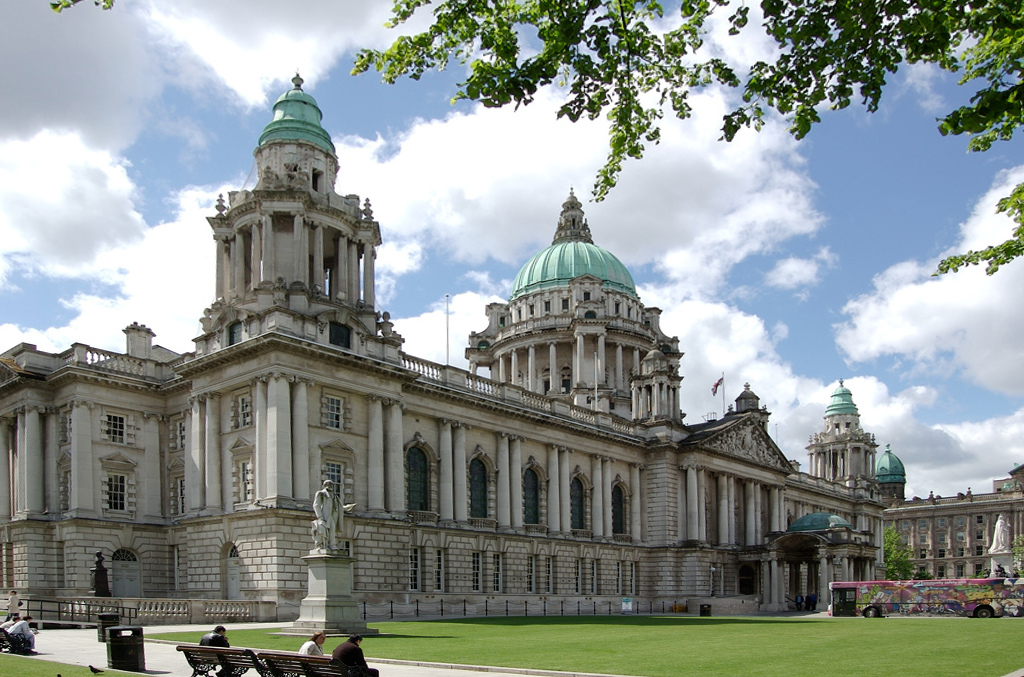Whisper it softly… but away from the arguments over the Protocol there are signs Northern Ireland is benefiting from its economic relationship with the EU
The latest EU proposals on the Protocol would put Northern Ireland in a uniquely beneficial economic position compared to the rest of the United Kingdom.

Last week, the European Commission made a big intervention on Northern Ireland to break the logjam in the talks over the Northern Ireland Protocol (NIP). The NIP – which allows the free flow of goods and people across the border between the Republic of Ireland and the North – is strongly opposed by many in the Unionist community, because it creates a regulatory border in the Irish Sea. The new European Commission proposals represent significant concessions, which would resolve many of the key economic challenges facing Northern Ireland.
If taken up by the UK side, they would:
- Reduce the need for 80% of checks on goods such as plants, animals and food entering Northern Ireland from Great Britain (“SPS”, Sanitary and Phytosanitary products).
- Reduce customs paperwork by around 50% for goods entering Northern Ireland from Great Britain.
- Achieve a deal on the interrupted movement of medicines and pharmaceutical products.
Despite these proposals representing clear concessions by the EU, there is no guarantee of a successful outcome to the talks. In the same week as the EU brought forward these solutions, the UK-side introduced a “new red line” on European Court of Justice (ECJ) oversight of the agreement, potentially scuppering a deal from the start.
The problems that the existing NIP creates for Northern Ireland should not be underestimated. It raises a series of difficult practical issues and antagonises fragile inter-community relations. But there are also interesting signs that the polity may stand to benefit from its unique relationship with the EU – especially if the latest Commission proposals are accepted, which would resolve many of the practical problems and bring clear economic benefits.
Under the Brexit deal, Northern Ireland is effectively a part of the European single market – with exporters facing nothing like the restrictions on trade faced by British companies when moving goods to mainland Europe. At the same time, the UK government has said it won’t introduce trade barriers on the vast majority of goods moving from Northern Ireland to Great Britain. So, firms in the province can continue to export to Great Britain without restrictions (while European companies can also use it as a ‘backdoor’ into the British market).
Northern Ireland: ushering in a new era of closer relations with the Republic and EU?
These changes in the terms of trade regulation between the UK and EU are already reshaping flows of goods – and introducing notable economic divergences between Northern Ireland, the Republic of Ireland and Great Britain.
Northern Ireland did not experience the petrol shortages that gripped much of the rest of the UK. And its economy is adapting toward a closer relationship with the Republic of Ireland and the EU. In February of this year, a bell weather large logistics firm, Hannon Transport, said that it was pulling out of GB-NI trade to focus on the European market – a statement that turned heads but has since been captured in economic data as part of a broader trend. Export of goods from Northern Ireland to the Republic have increased 77% since the end of the transitional period. While a change along these lines was expected, the scale of it has taken many by surprise, amounting to a rise in €800 million in exports in the first 6 months of 2021. Goods moving in the other direction also increased by 43%.
This illustrates how supply chains on either side of the Irish border are adapting, building new links encompassing Europe. According to a report in The Irish Times, the Irish statistics authority is currently assembling port traffic data which is expected to show sharp falls in Dublin-Holyhead freight (the busiest Irish Sea Route) – as firms from the island by-pass Great Britain to connect to the rest of Europe. And as trade terms currently favour exporters in the EU compared to those on the British side, the Irish economy has also sharply boosted exports to (and reduced imports from) the UK. Northern Ireland can also reasonably expect in the future to benefit from its access to Britain, as firms on the EU-side could invest in warehouses to take advantage of its backdoor into the ‘British single market’.
This should not be read as downplaying the political challenges that the NIP raises. And it is, in any case, still too early to judge how these economic relationships will settle overtime. But there is a possibility that Northern Ireland will become an uncomfortable example for Brexit supporters, exposing by way of comparison the problems facing the British economy as a result of leaving the EU.
October 19, 2021
Brexit Spotlight is run by Another Europe Is Possible. You can support this work by joining us today. The website is a resource to encourage debate and discussion. Published opinions do not necessarily represent those of Another Europe.





